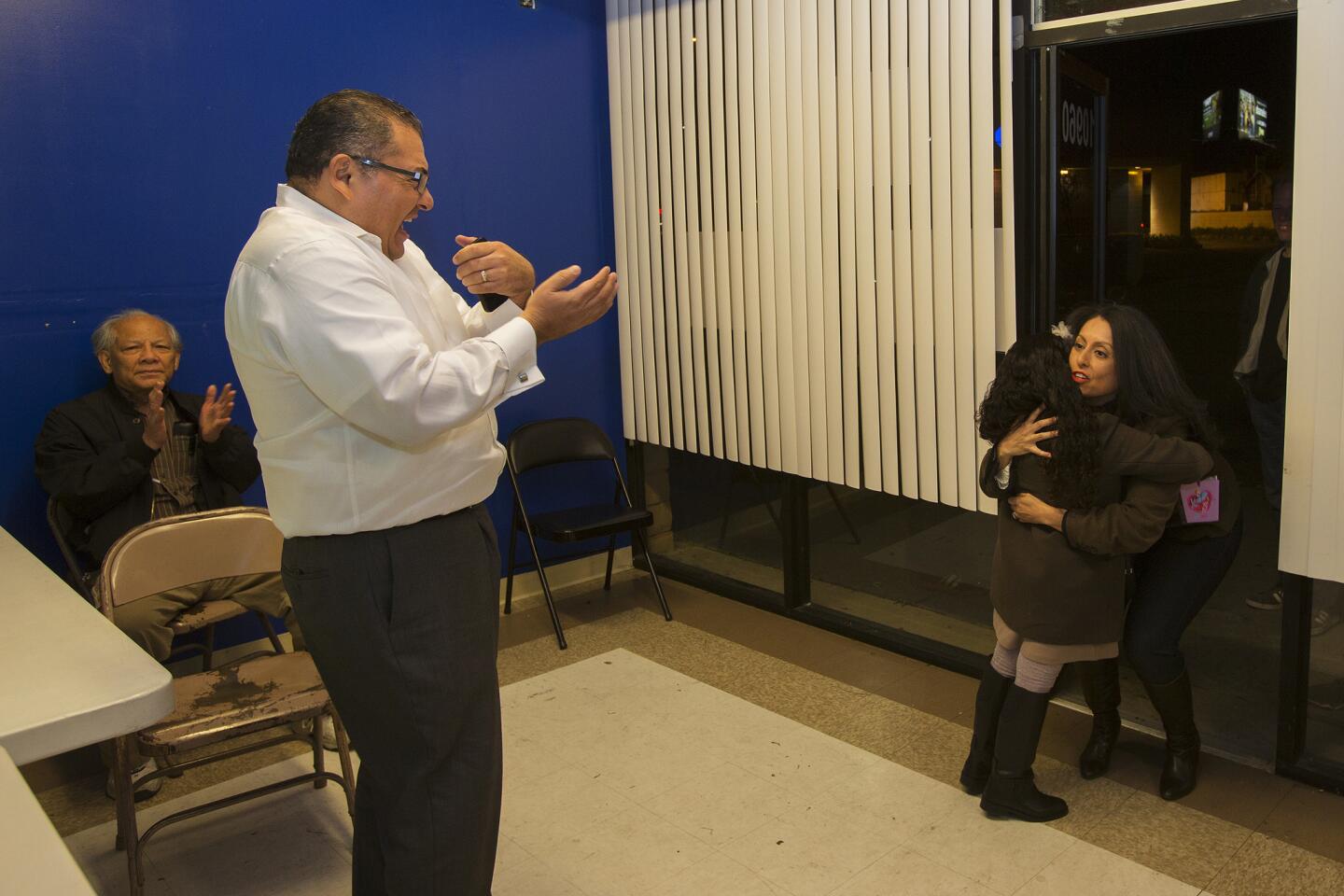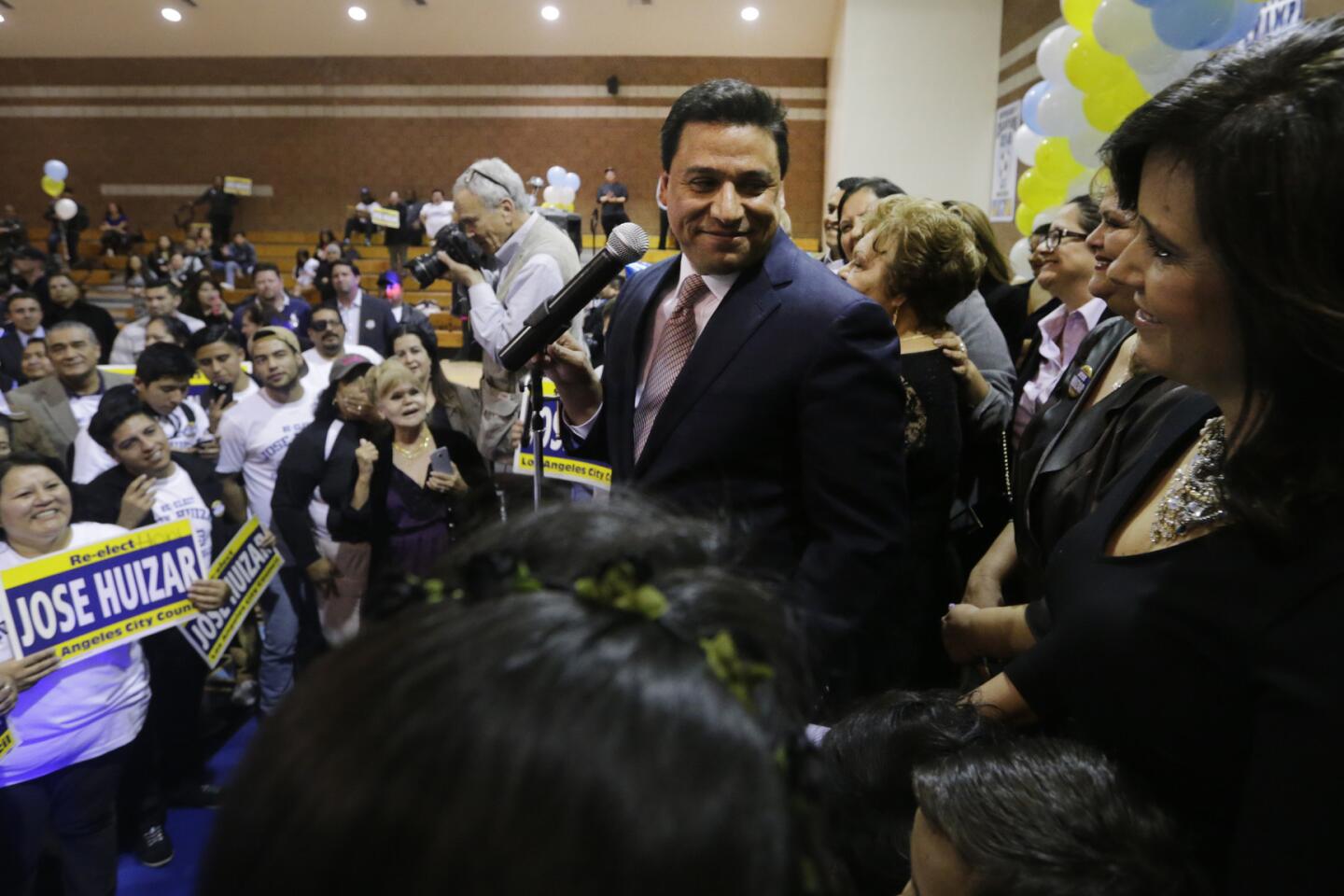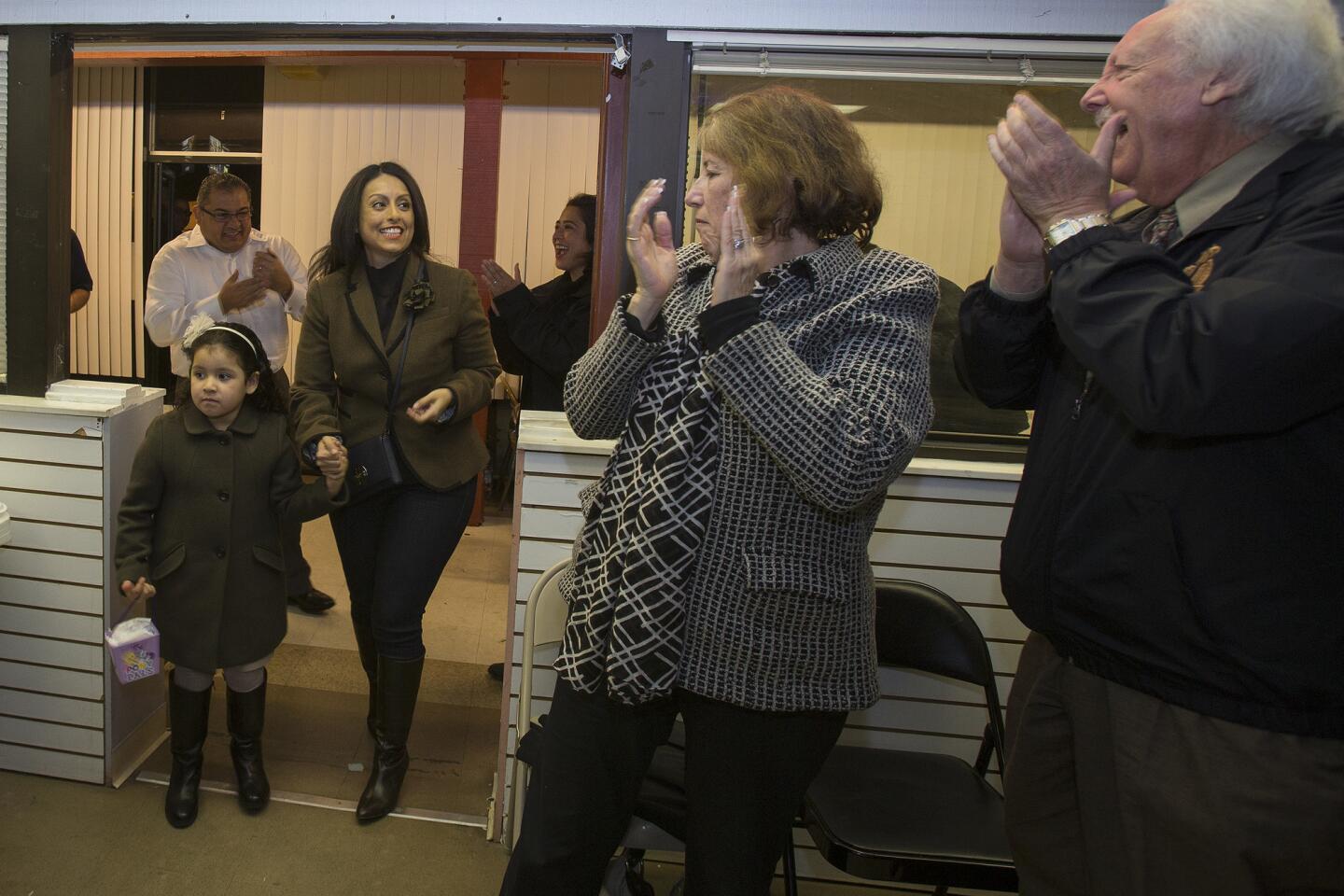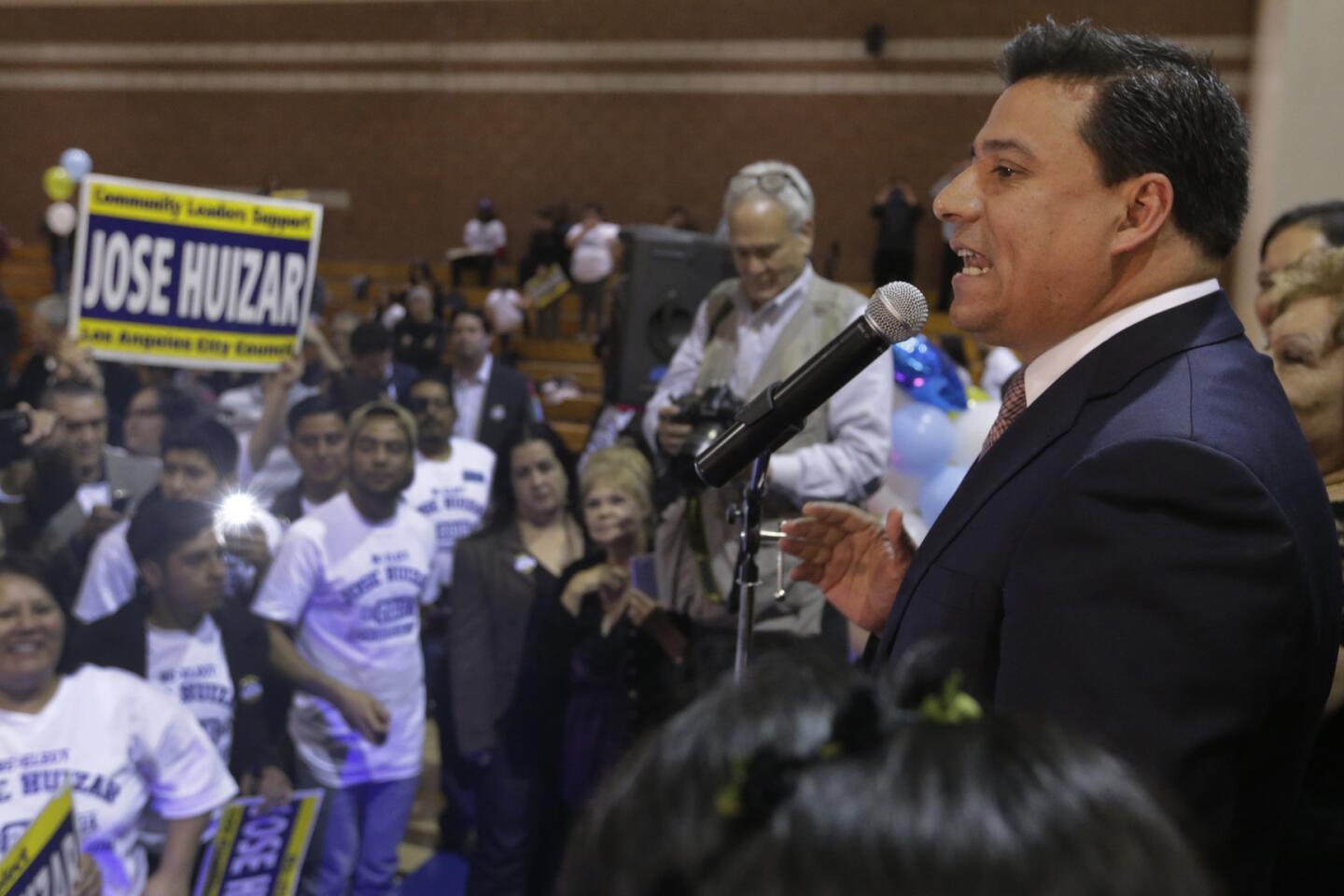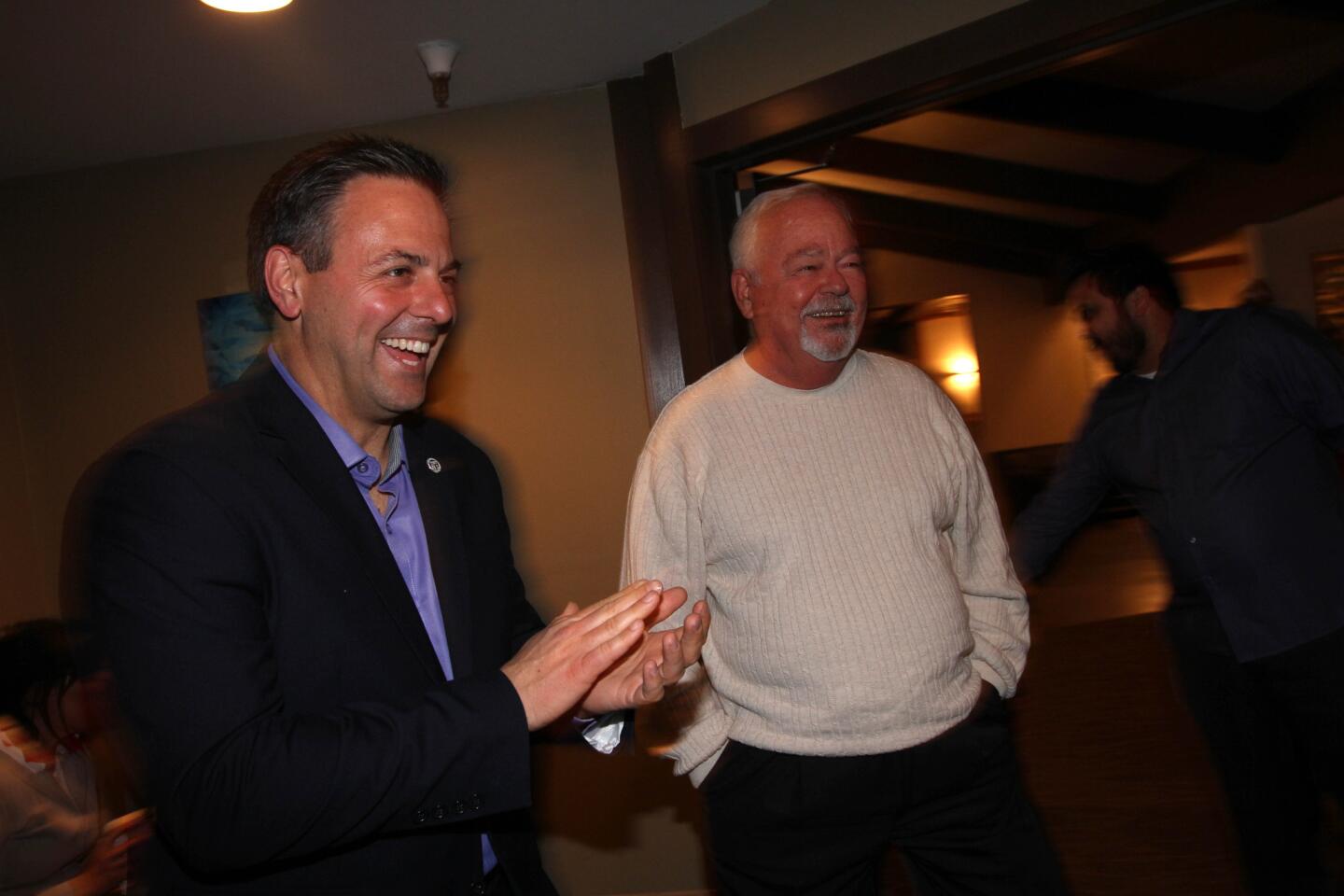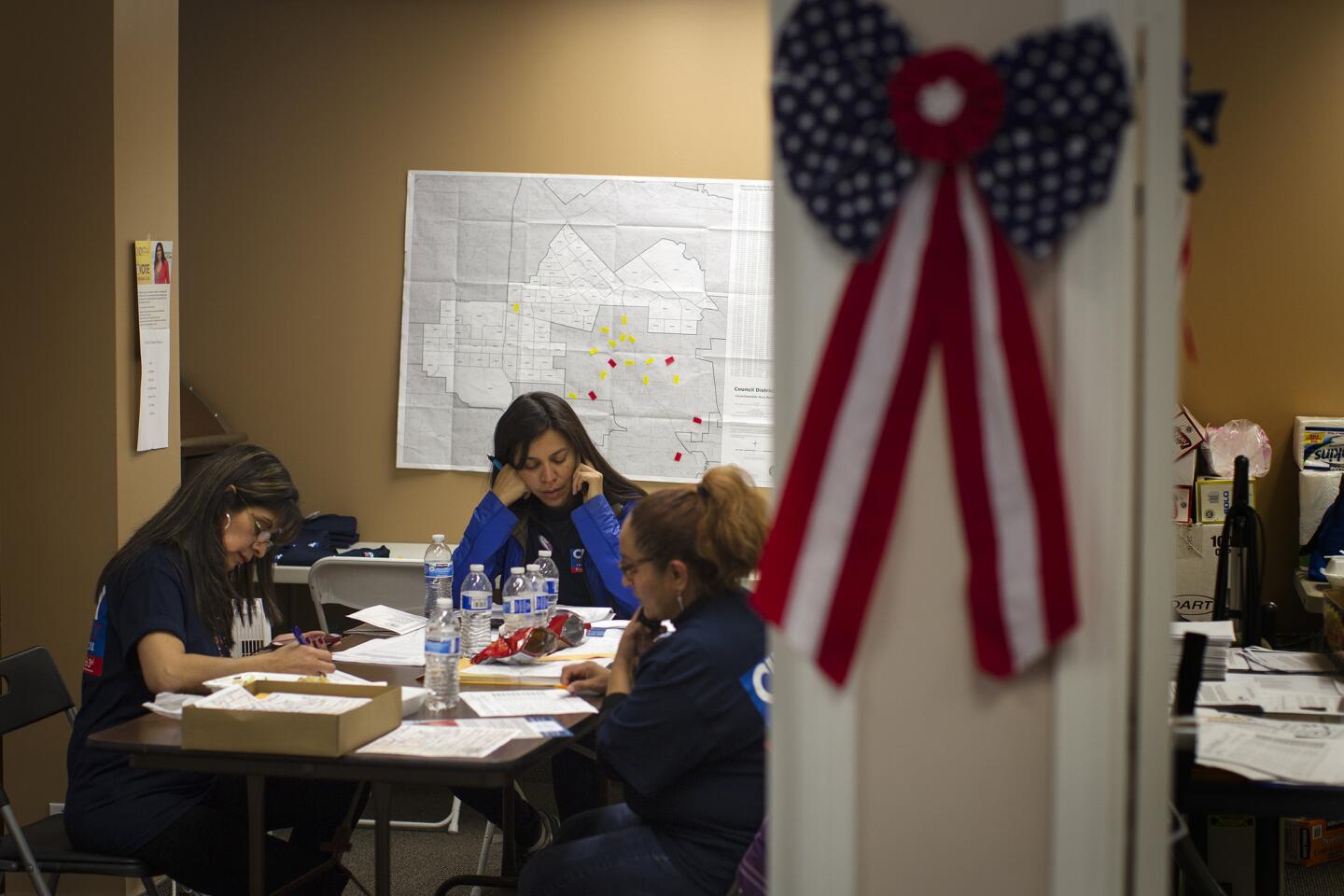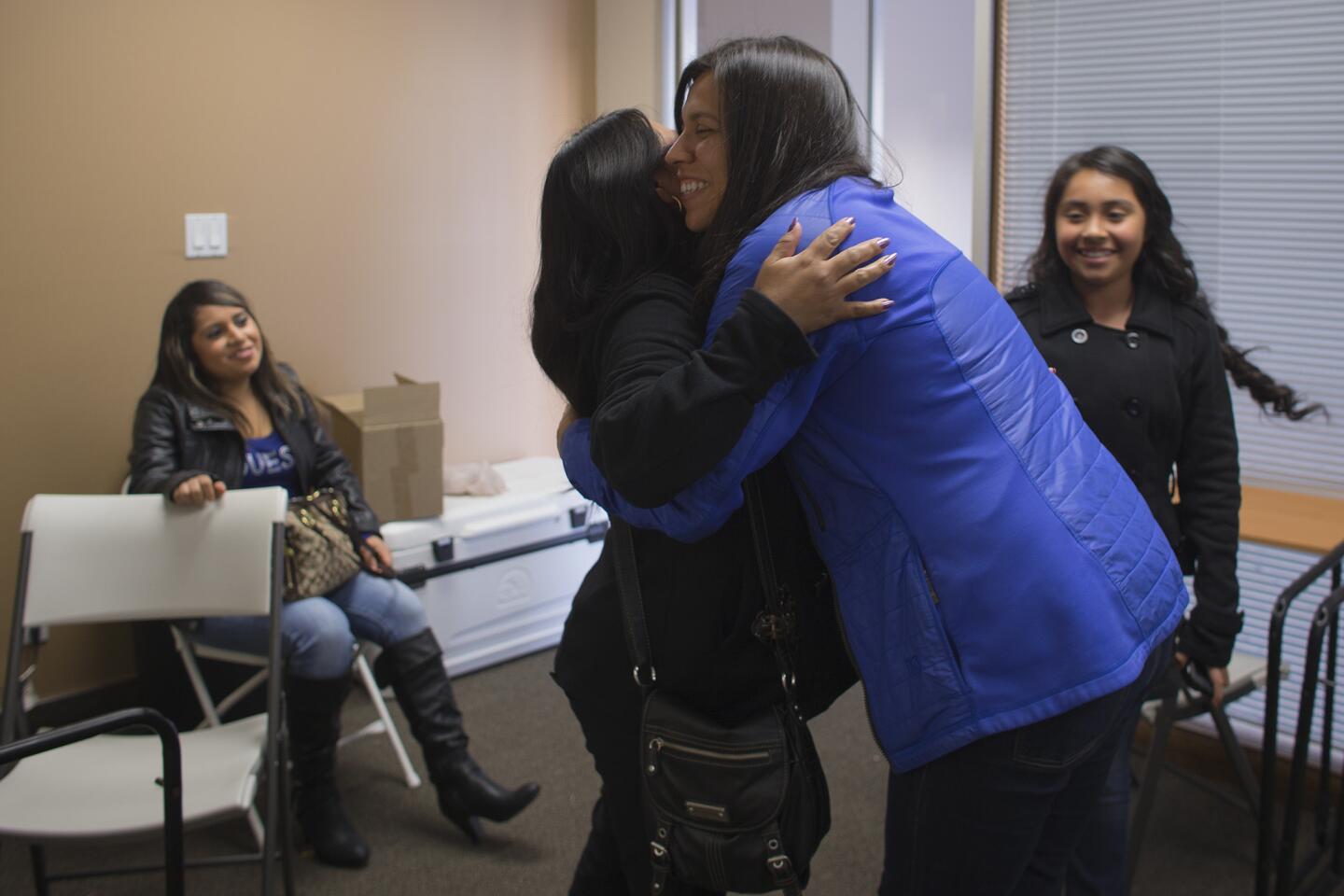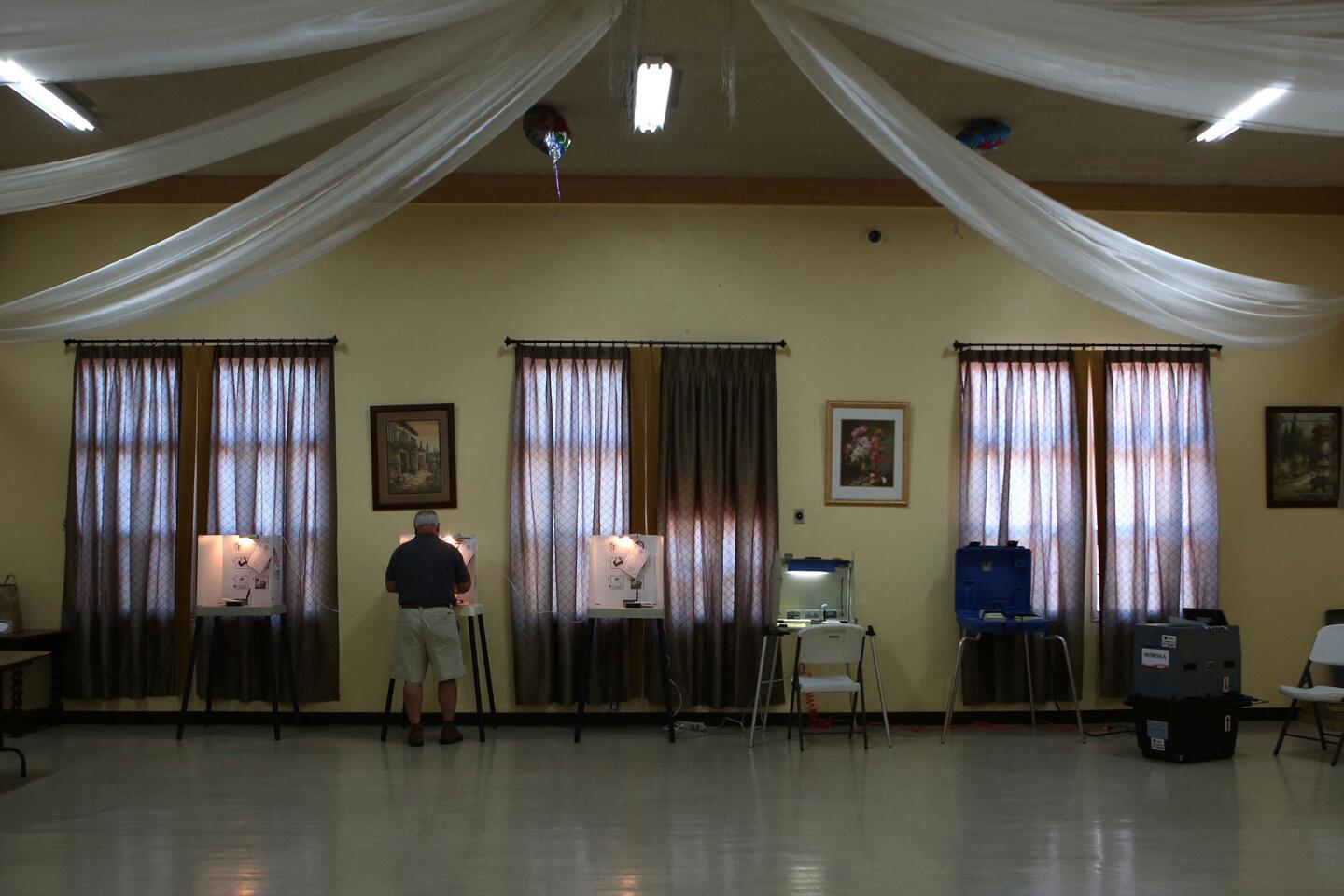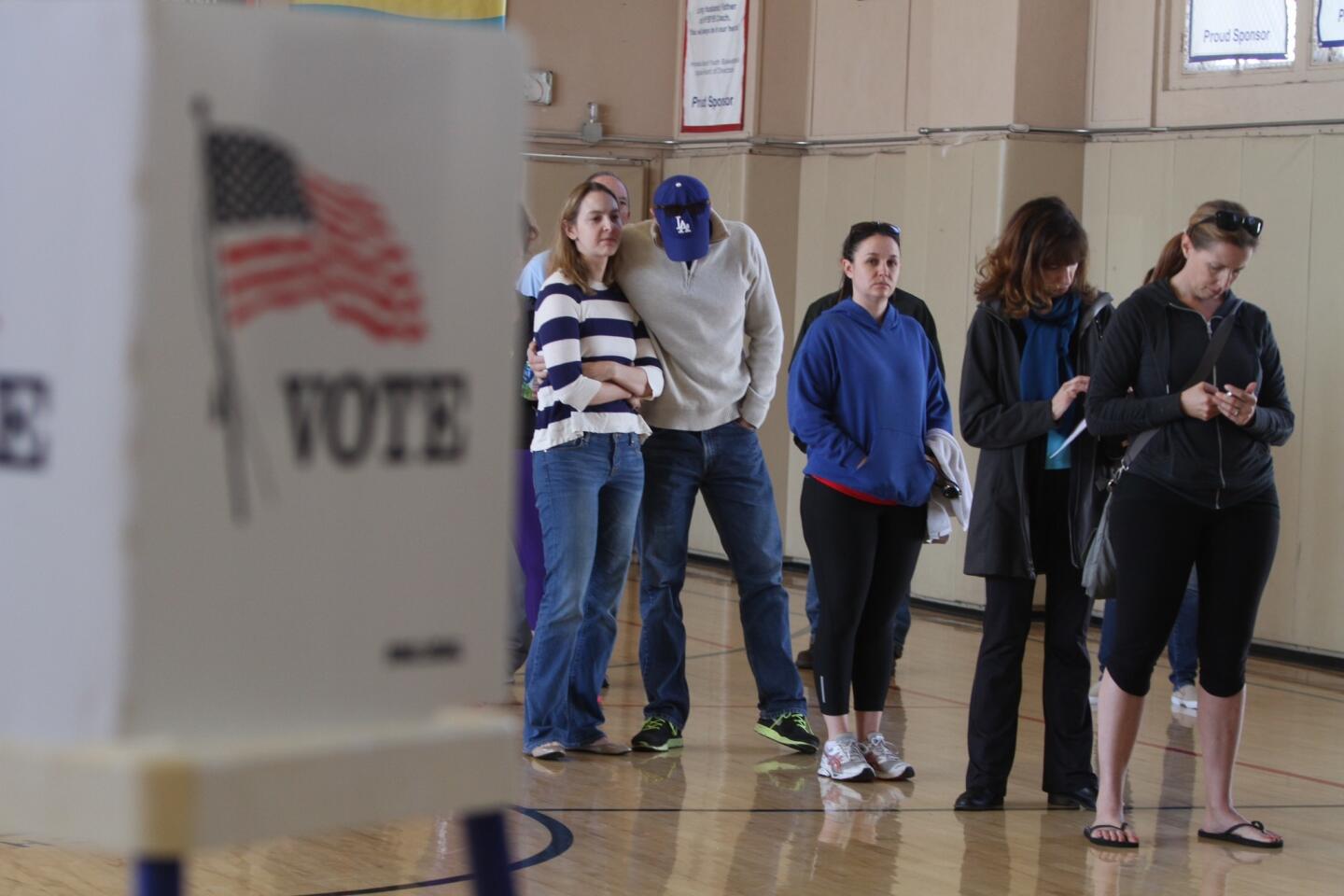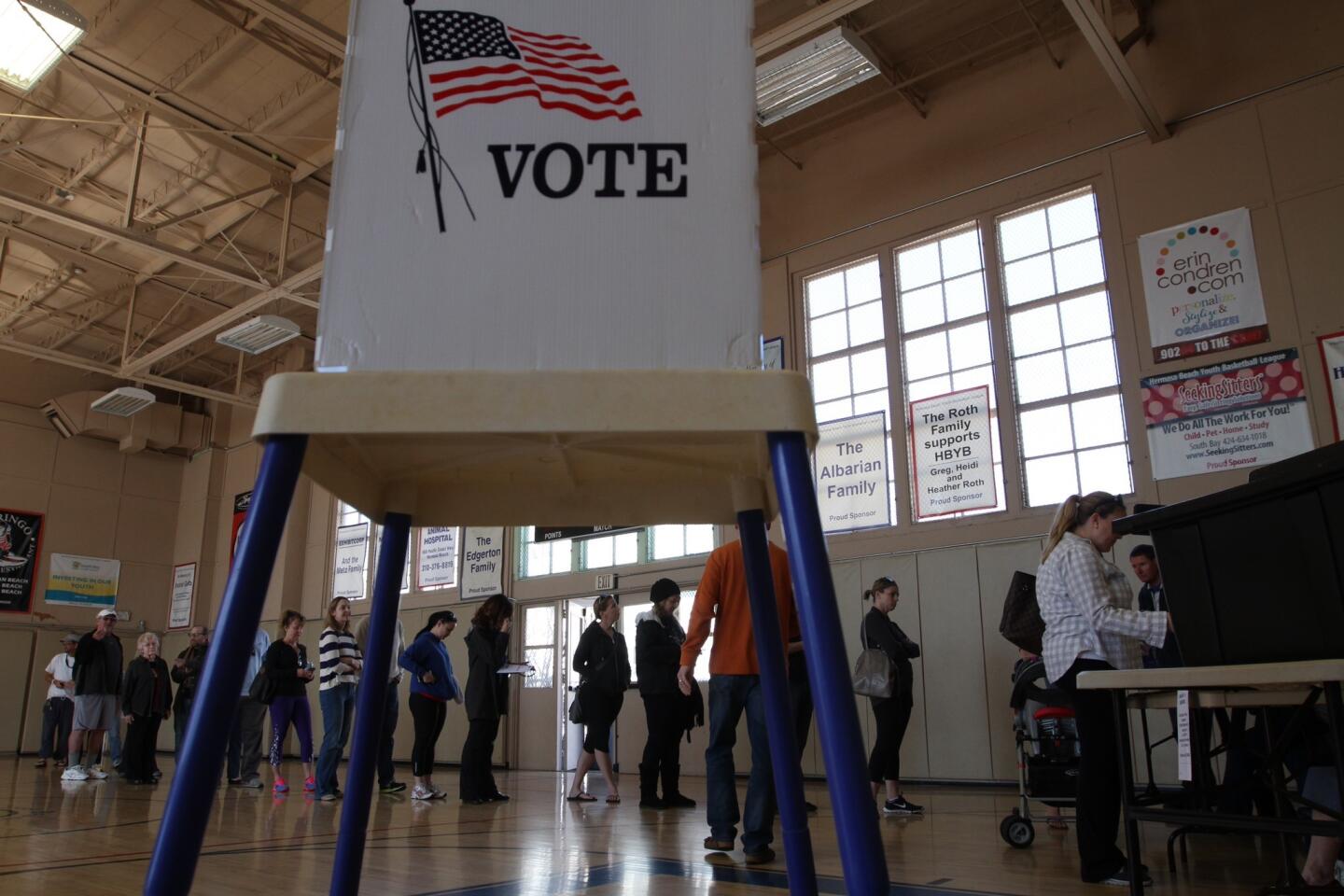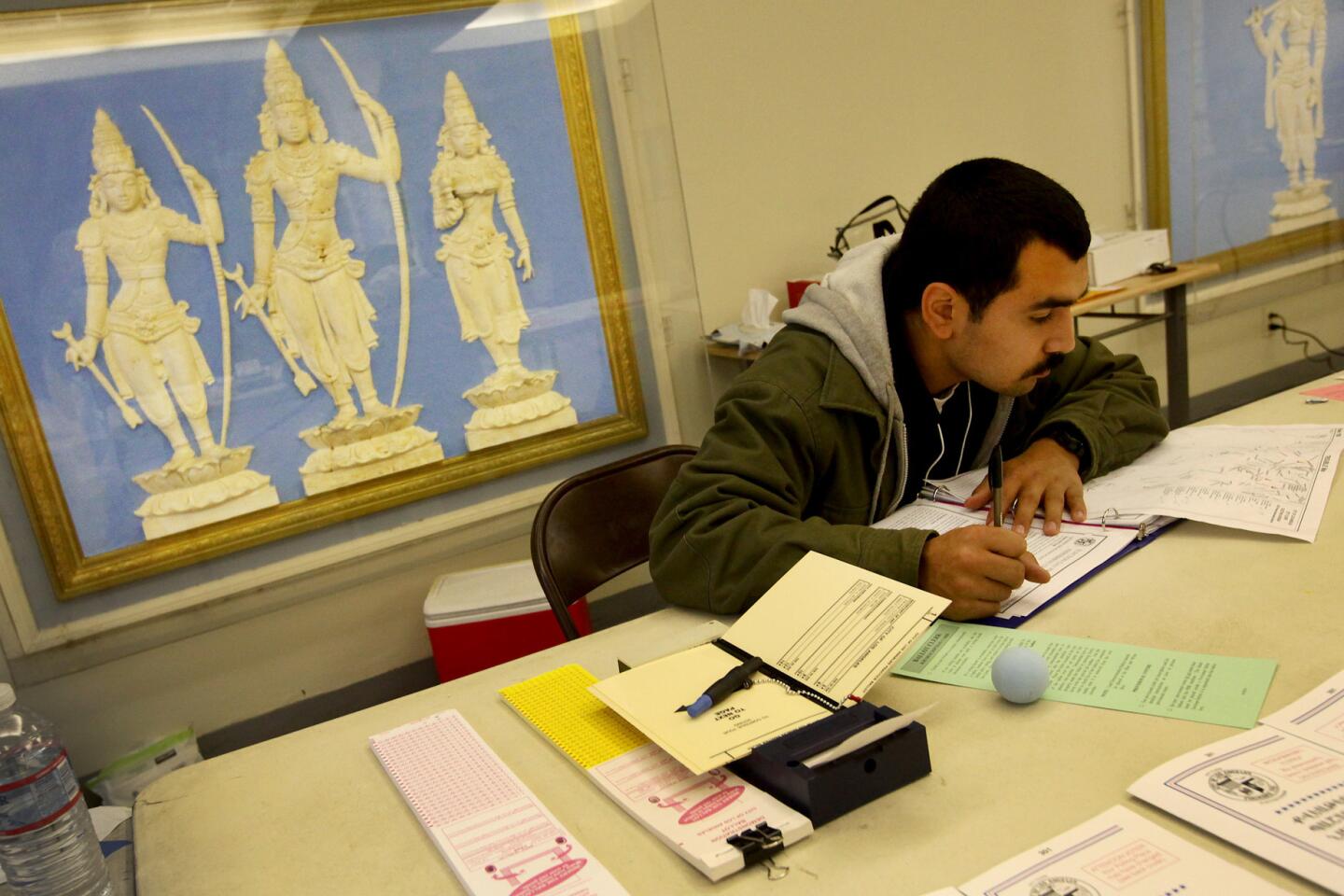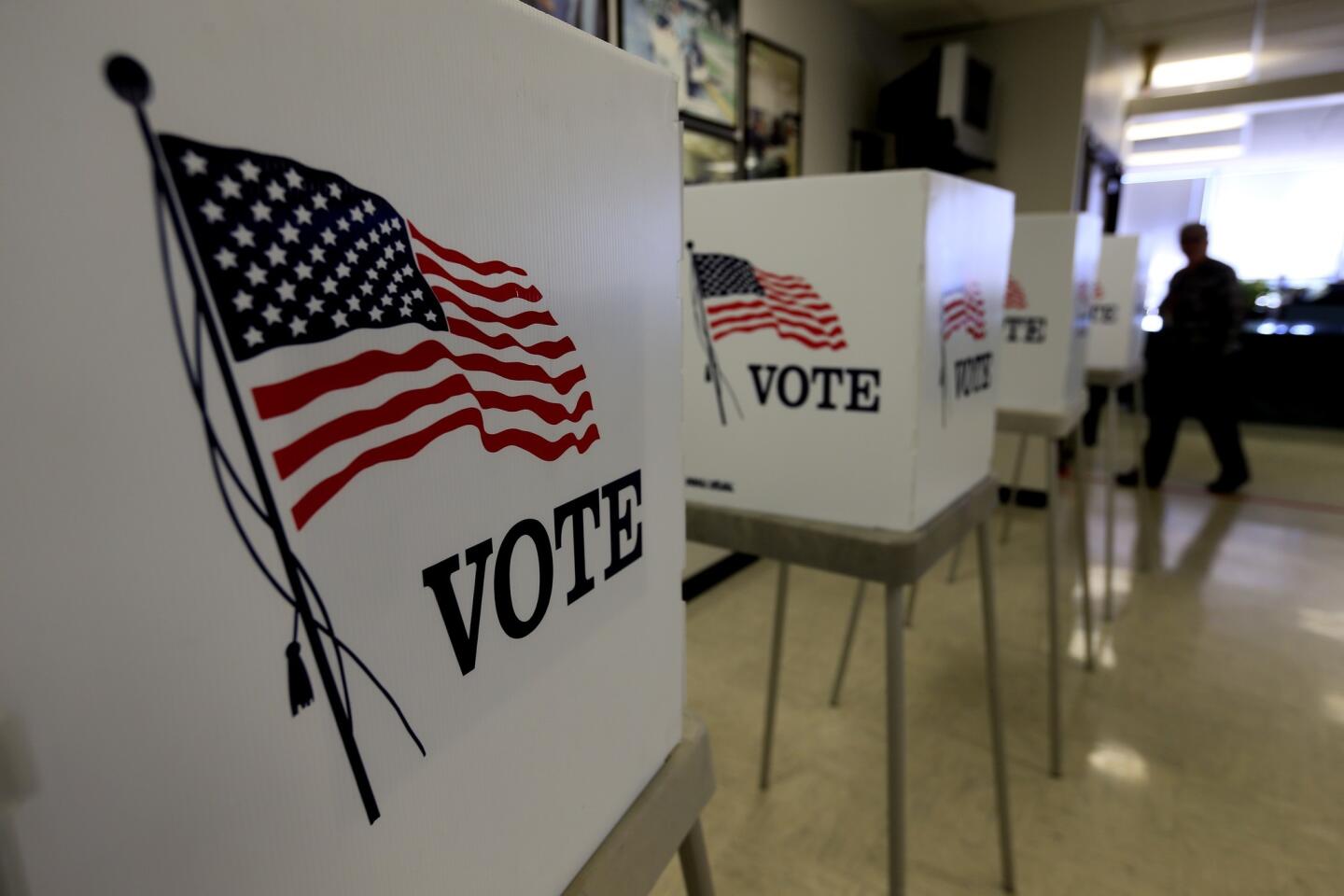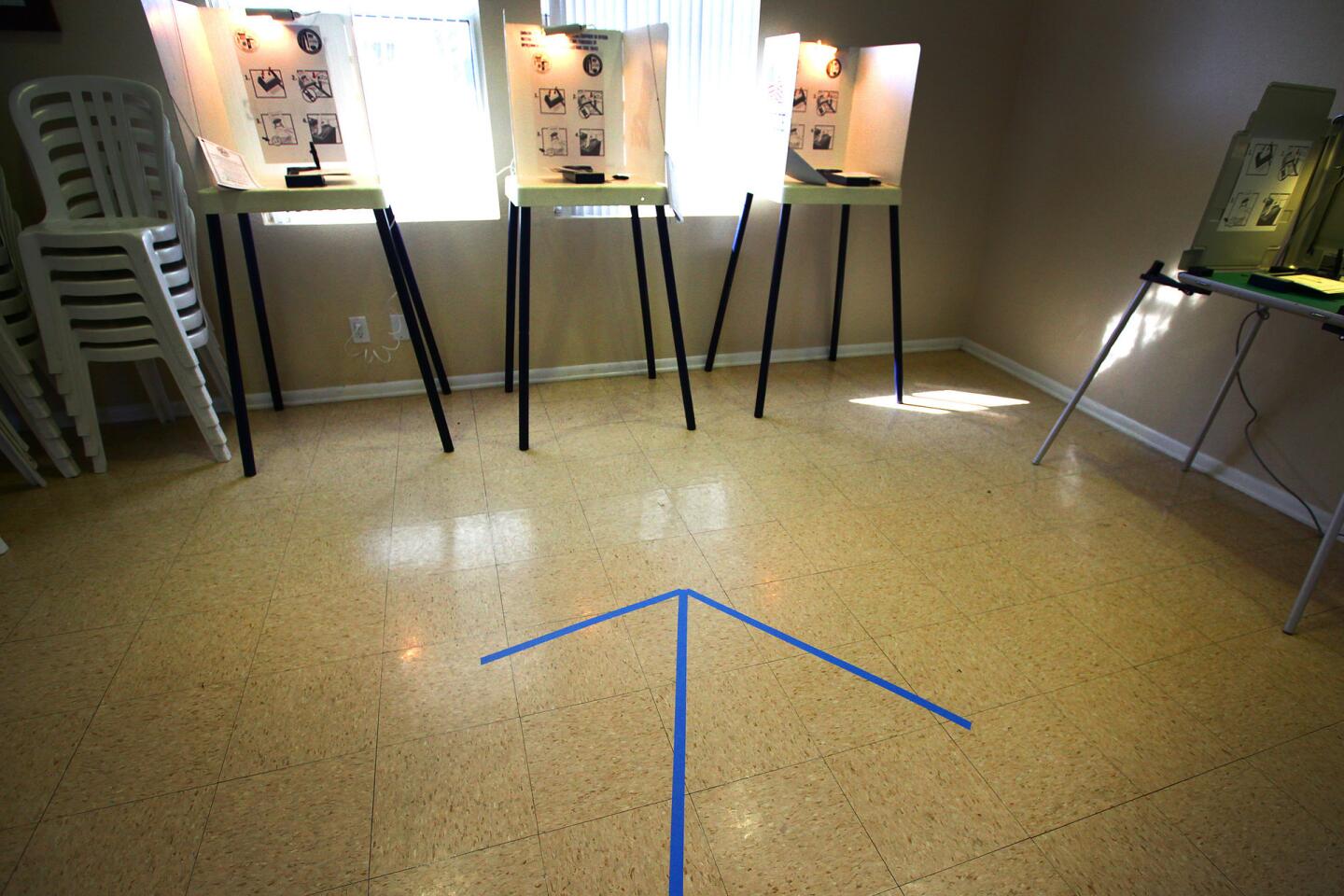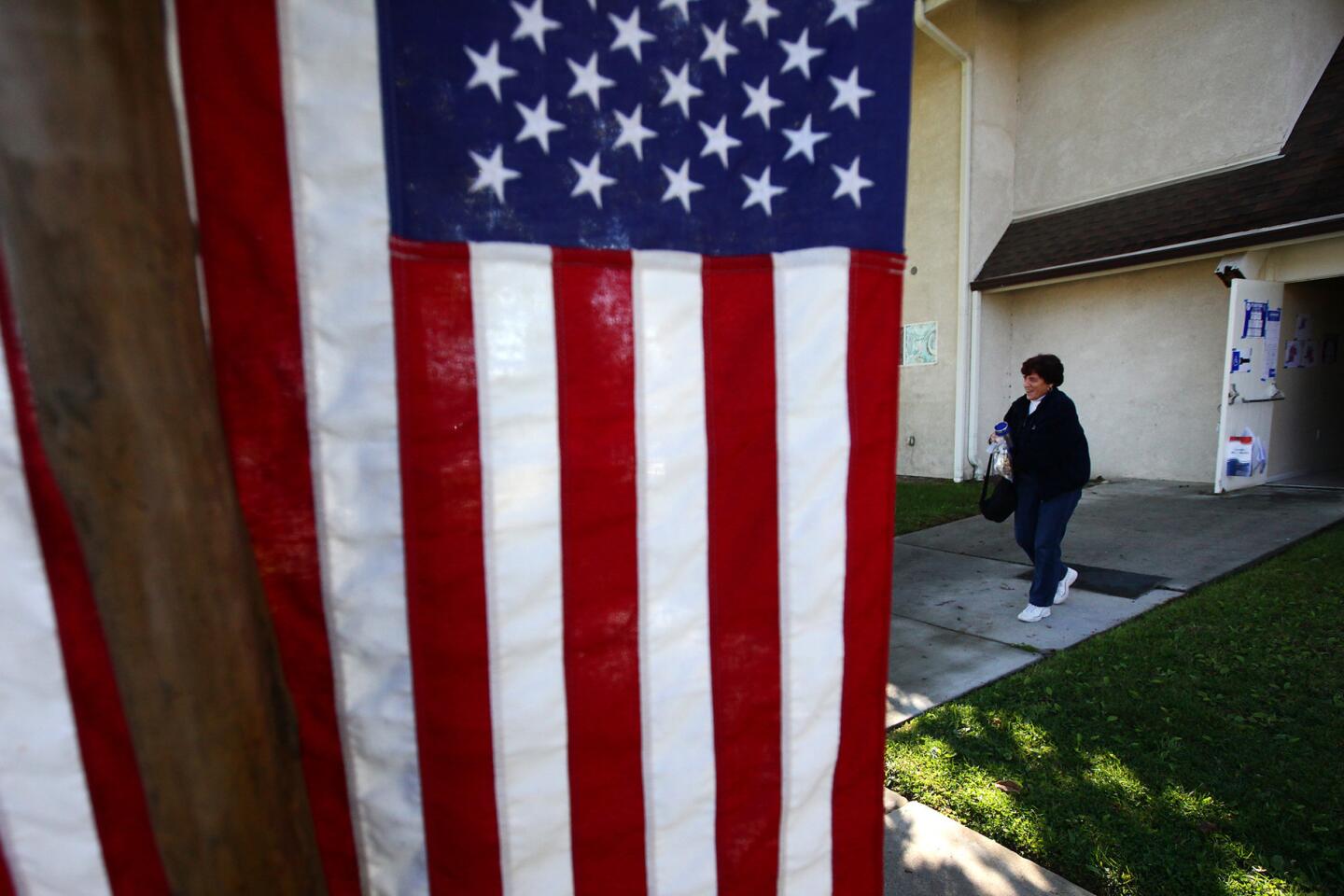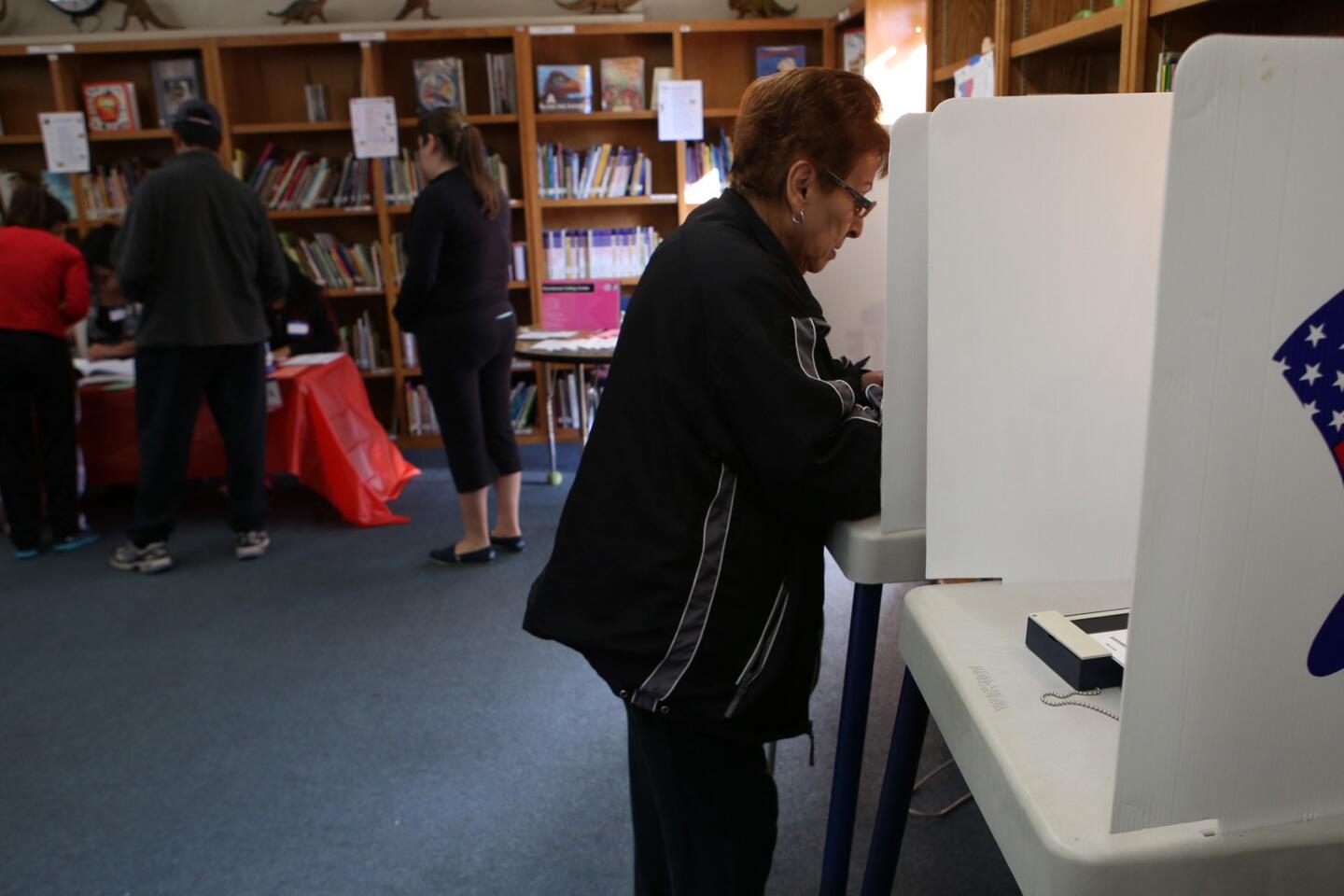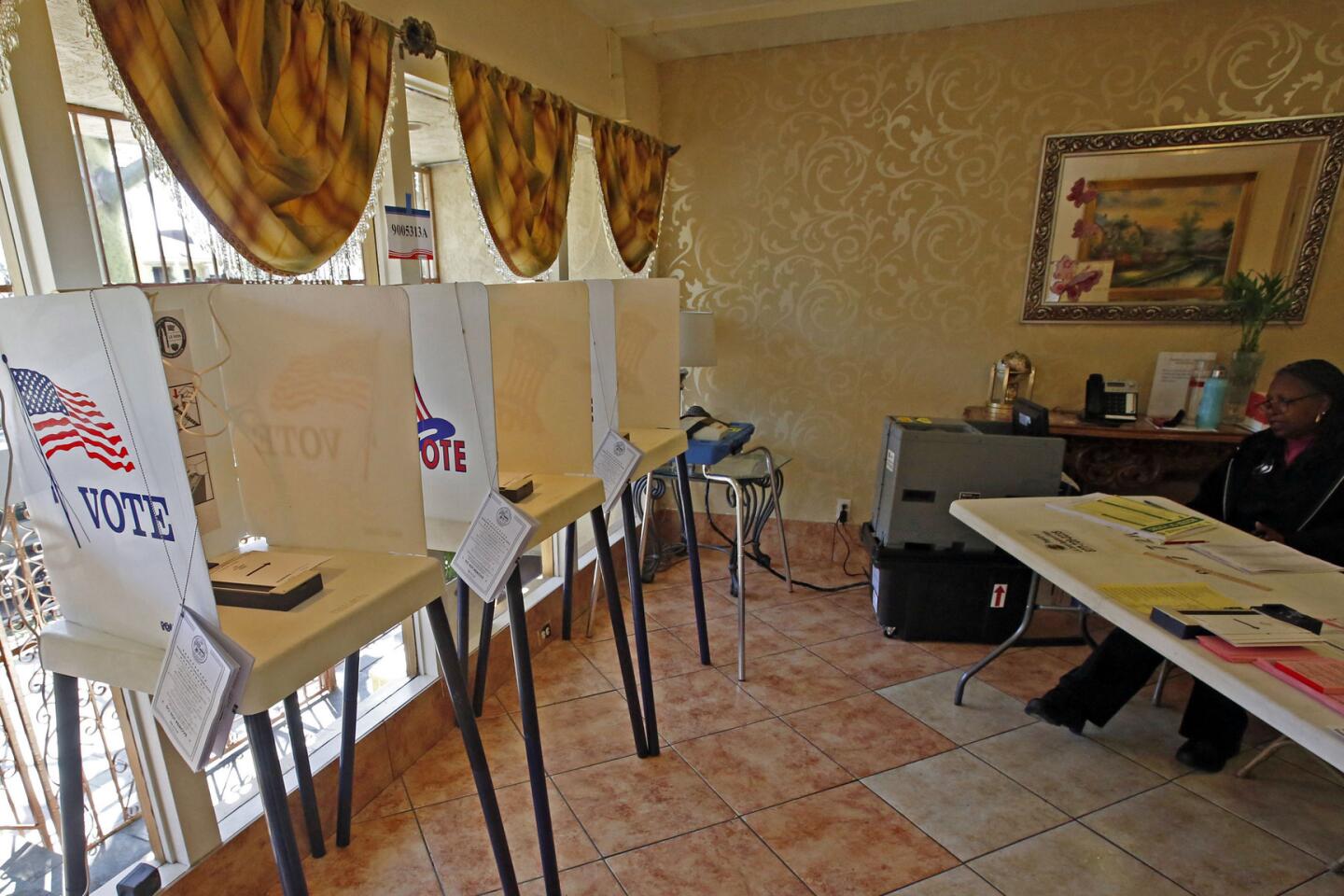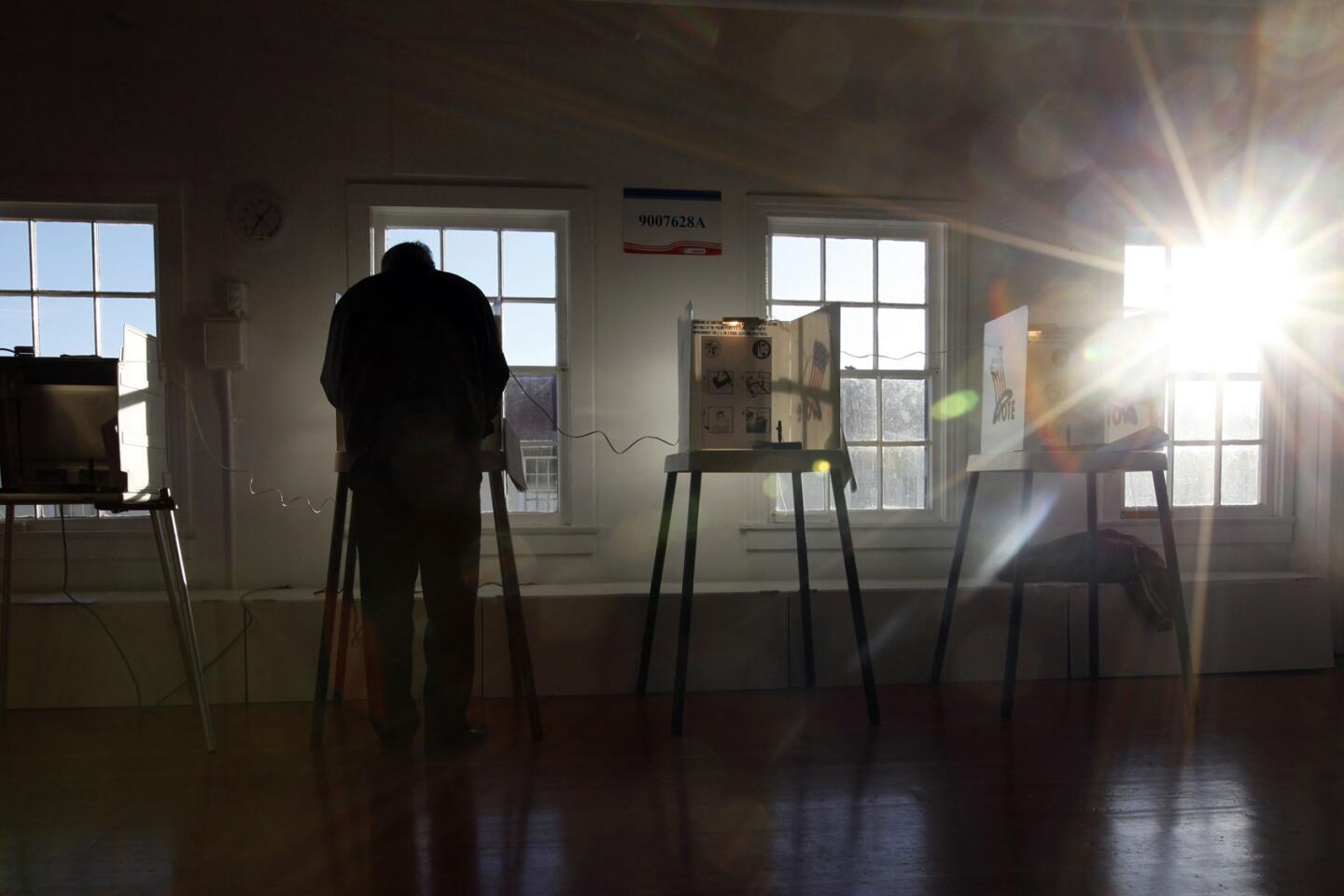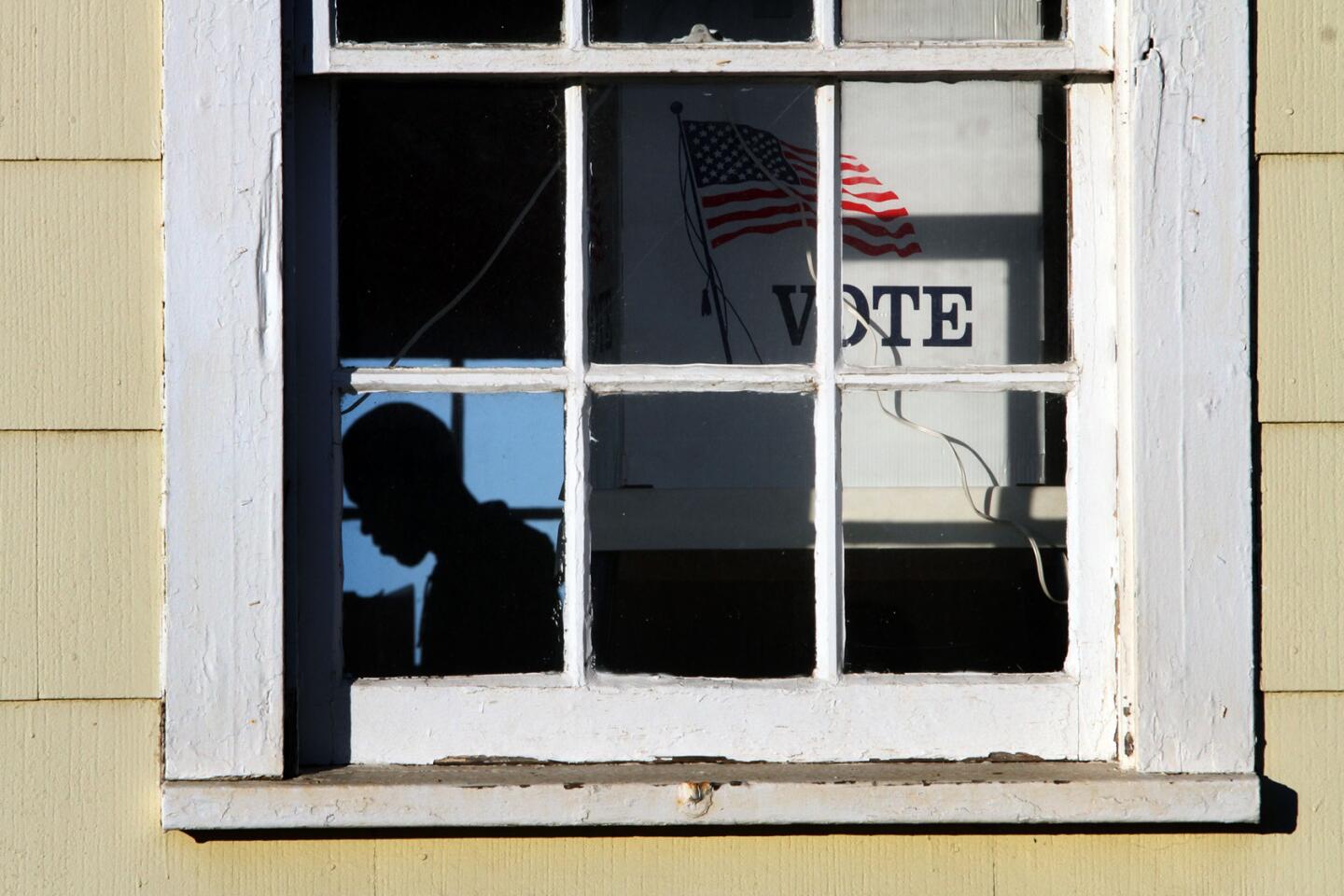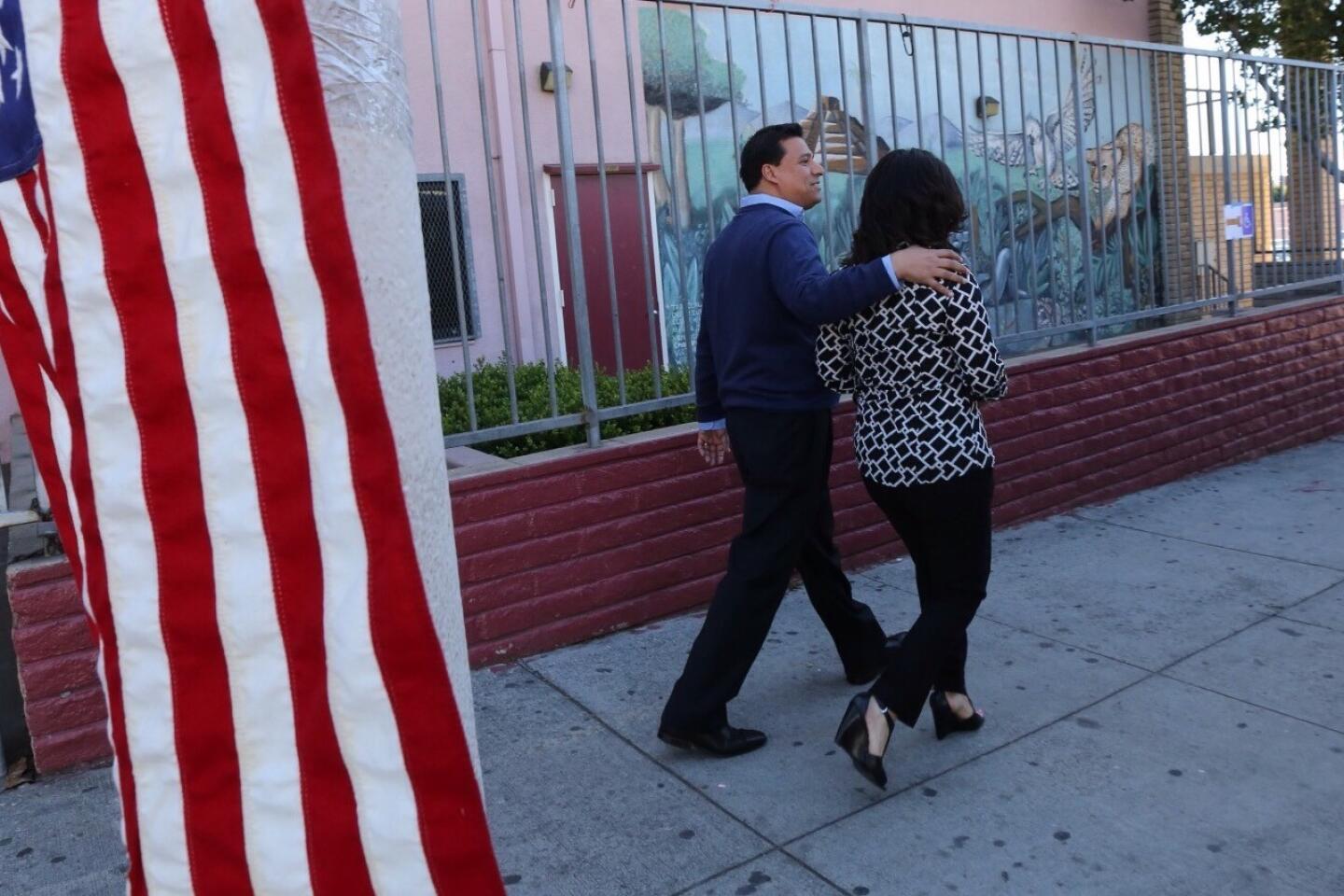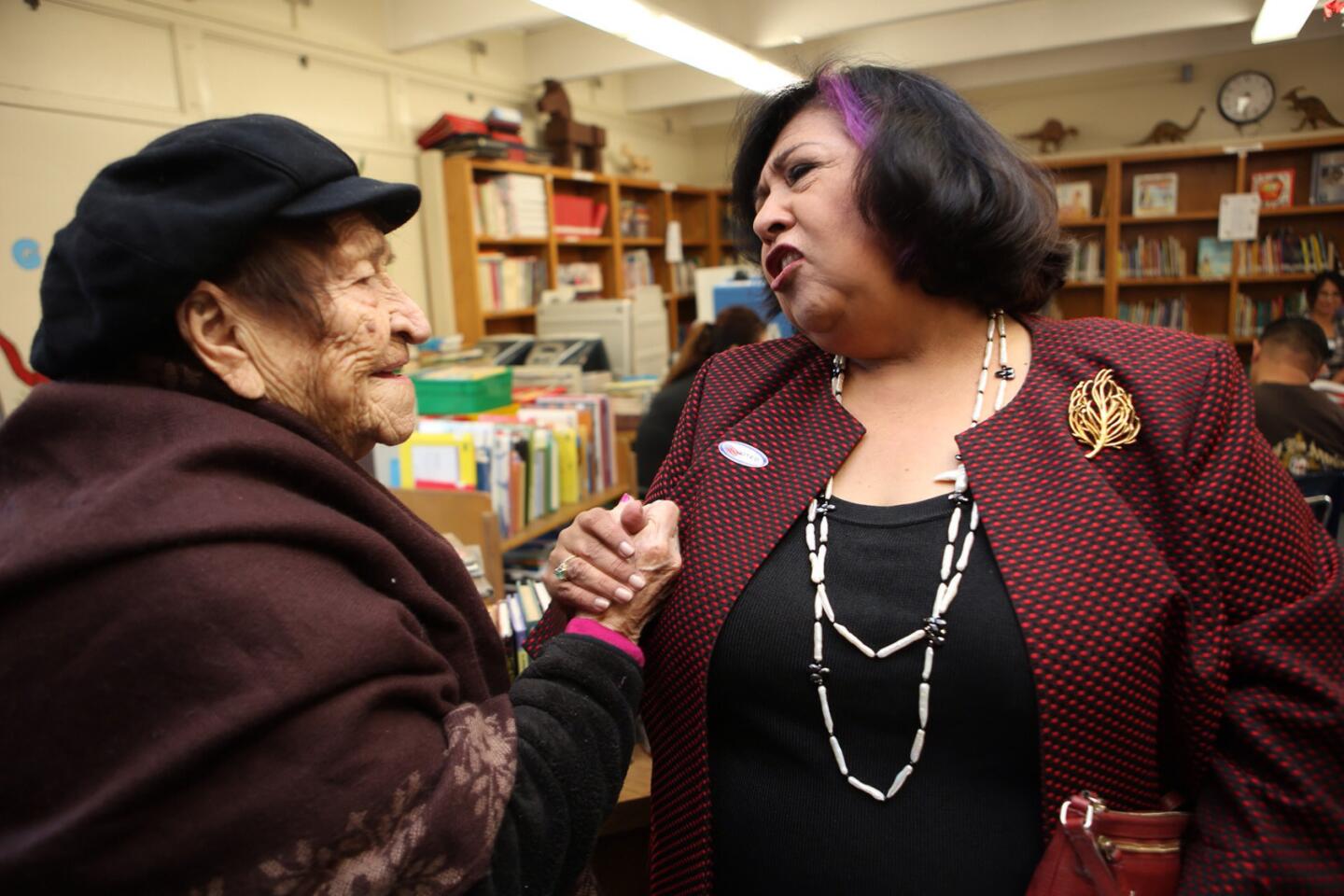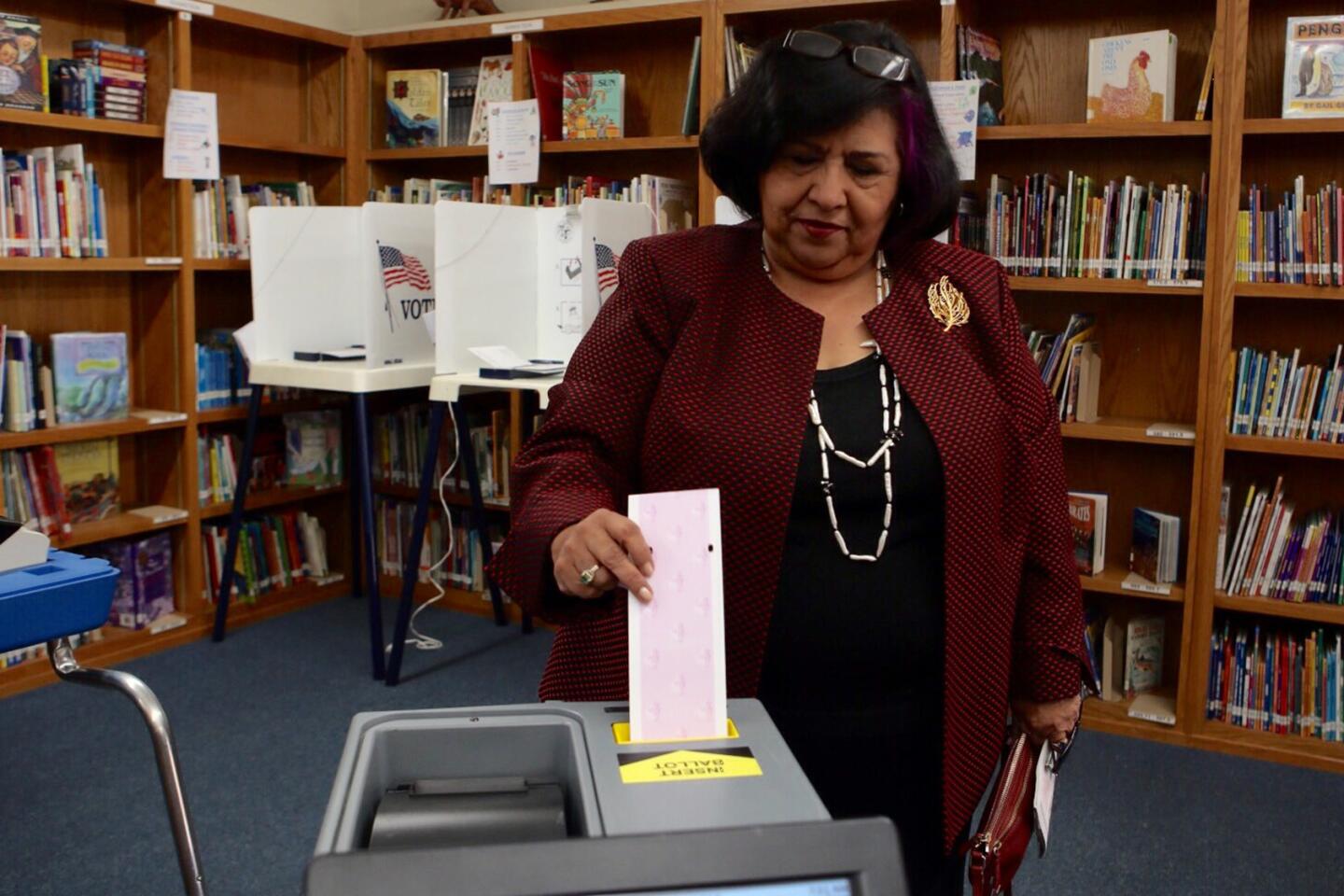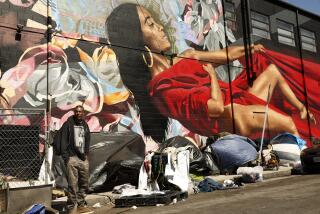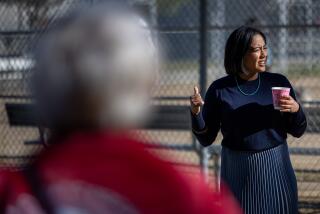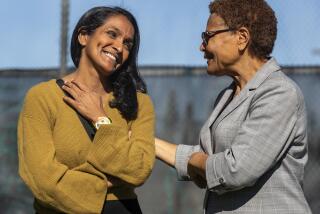Measures to bolster voter turnout sail toward passage; incumbents fend off challenges
In a campaign where the issue of voter participation was front and center, two measures to bolster turnout by combining Los Angeles elections with state and federal contests sailed toward passage Tuesday, early results showed.
A handful of City Hall incumbents — council members Jose Huizar, Paul Krekorian, Nury Martinez and Herb Wesson — were easily fending off reelection challenges, according to partial returns. Councilman Mitchell Englander, who was unopposed, also won reelection.
Charter Amendments 1 and 2, billed as ways to boost turnout in city and school board races, were well ahead of the more than 50% approval required to win passage, the results showed. They were being decided on a day when turnout in the city was expected to stay below the much-lamented 21% mark recorded two years ago, when there were open races for mayor and six council offices.
“This is a great win for the people of Los Angeles,” said campaign co-chairman Dan Schnur, a former chairman of the California Fair Political Practices Commission, in a written statement. “Tonight they won back their elections from the special interests who have controlled local politics for far too long.”
Schnur’s victory statement came hours after his campaign reported a spate of last-minute, five-figure donations from an array of City Hall interests, including the powerful union that represents Department of Water and Power workers, a company that rents office space to the city and a real estate developer that built two Koreatown residential towers with $17.5 million in city financial help.
Hector Huezo, a Boyle Heights activist who had campaigned against the measure, said he was disappointed with the results. The change in dates will make L.A. elections more expensive, he said, giving special interests greater sway over the outcome.
Many of those interests poured money into the campaign to get the measures passed, Huezo said.
“We understood that we were the underdogs in this from the beginning,” he said.
The two measures call for city and school board elections to be held in even-numbered years starting in 2020. They also would provide most council members — those who win this year or in 2017 — an extra 18 months in office.
The election date change was backed by Wesson, the League of Women Voters of Los Angeles, and an array of union officials and business leaders. It wasn’t immediately clear whether turnout would surpass the last comparable council election in 2011, when about 14% of voters cast ballots.
On the Eastside, Huizar declared victory after surging far above the 50% needed to avoid a May 19 runoff. First elected in 2005, he said his strong showing demonstrated that he had delivered on basic services, such as tree trimming, street paving and sidewalk repairs.
“This election was about constituents getting what they want from the city,” Huizar said at his victory party.
Former L.A. County Supervisor Gloria Molina, one of four challengers to Huizar, admitted her campaign had struggled to break through. Her opponent raised more than $850,000 for his reelection bid and outside groups — labor unions, business groups and other City Hall interests — spent another $590,000 on his behalf.
“It’s tough running against an incumbent — everybody always said that – and, of course, all that money,” she said.
In a San Fernando Valley district that takes in Van Nuys, Arleta and Panorama City, Martinez had a double-digit lead over former Assemblywoman Cindy Montañez, in a rematch of a contest from two years ago.
“I’m so happy the voters sent a message they want to work together another four years,” said Martinez.
In the 14-way race to replace termed-out Councilman Tom LaBonge, three candidates were competing in a tight race for two slots in the runoff: community health director David Ryu; Carolyn Ramsay, LaBonge’s former chief of staff; and nonprofit director Tomas O’Grady.
Ryu, a onetime aide to former County Supervisor Yvonne B. Burke, said he was “running to change the conversation at City Hall.”
“It’s about having an independent voice at City Hall,” he said. “That’s what this election was about.”
In South Los Angeles, nonprofit executive Marqueece Harris-Dawson was pulling far ahead of his opponents in the race to replace departing Councilman Bernard C. Parks, the results showed. His lead had him just above the amount needed to avert a runoff.
In a Crenshaw-to-Koreatown district, Council President Wesson held a significant lead over his two challengers — attorney Grace Yoo and physician Delaney “Doc” Smith.
In Huizar’s district stretching from Boyle Heights to Eagle Rock, the candidates tangled over bicycle lanes, sidewalk repairs, downtown development and the power of special interests in local elections. Huizar also had to respond to questions from his opponents about a sexual harassment lawsuit filed against him and later settled.
In the Valley, Martinez and Montañez quarreled over the city’s efforts to curb illegal dumping, fight prostitution and regulate digital billboards.
By far the most unpredictable contest was in LaBonge’s Silver Lake-to-Sherman Oaks district.
That race, which played out in some of the most affluent parts of the city, was dominated by questions about growth and development, from mansionization to the debate over new highrises in Hollywood.
Council aide Joan Pelico, one of the 14 contenders, said voters repeatedly told her they were either undecided or going to hold off until the May 19 runoff.
catherine.saillant@latimes.com
Times staff writers Angel Jennings, Laura Nelson, Peter Jamison and Soumya Karlamangla contributed to this report.
More to Read
Start your day right
Sign up for Essential California for news, features and recommendations from the L.A. Times and beyond in your inbox six days a week.
You may occasionally receive promotional content from the Los Angeles Times.
